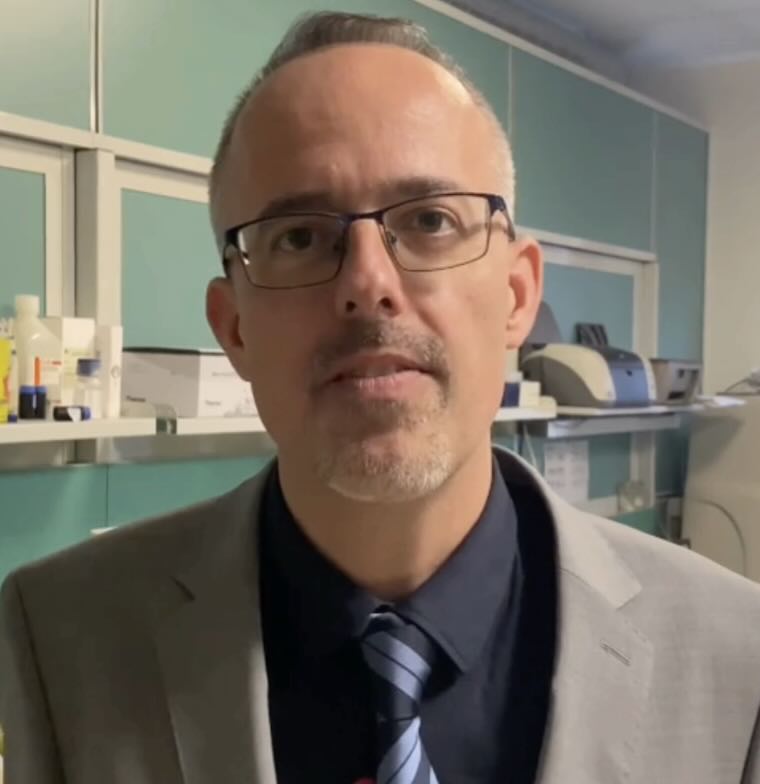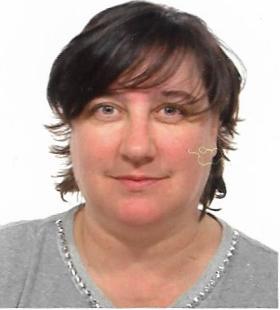Studying at the University of Verona
Here you can find information on the organisational aspects of the Programme, lecture timetables, learning activities and useful contact details for your time at the University, from enrolment to graduation.
Academic calendar
The academic calendar shows the deadlines and scheduled events that are relevant to students, teaching and technical-administrative staff of the University. Public holidays and University closures are also indicated. The academic year normally begins on 1 October each year and ends on 30 September of the following year.
Course calendar
The Academic Calendar sets out the degree programme lecture and exam timetables, as well as the relevant university closure dates..
| Period | From | To |
|---|---|---|
| INF BZ - 3° anno 1° sem | Oct 1, 2018 | Feb 6, 2019 |
| INF BZ - 2° anno 1° sem | Oct 1, 2018 | Dec 22, 2018 |
| INF BZ - 1° anno 1° sem | Oct 1, 2018 | Dec 21, 2018 |
| INF BZ - 1° anno 2° sem | Feb 1, 2019 | Mar 29, 2019 |
| INF BZ - 2° anno 2° sem | Apr 23, 2019 | Jun 8, 2019 |
| INF BZ - 3° anno 2° sem | May 2, 2019 | Jun 14, 2019 |
| Session | From | To |
|---|---|---|
| INF BZ - sessione invernale | Jan 7, 2019 | Feb 28, 2019 |
| INF BZ - sessione estiva | Jun 1, 2019 | Jul 31, 2019 |
| INF BZ - sessione autunnale | Sep 1, 2019 | Sep 30, 2019 |
| Session | From | To |
|---|---|---|
| INF - SESSIONE AUTUNNALE | Oct 1, 2019 | Nov 30, 2019 |
| INF - SESSIONE PRIMAVERILE | Mar 1, 2020 | Apr 30, 2020 |
| Period | From | To |
|---|---|---|
| Festa di Ognissanti | Nov 1, 2018 | Nov 1, 2018 |
| Festa dell’Immacolata | Dec 8, 2018 | Dec 8, 2018 |
| Vacanze di Natale | Dec 22, 2018 | Jan 6, 2019 |
| Vacanze di Pasqua | Apr 19, 2019 | Apr 23, 2019 |
| Festa della liberazione | Apr 25, 2019 | Apr 25, 2019 |
| Festa del lavoro | May 1, 2019 | May 1, 2019 |
| Festa della Repubblica | Jun 2, 2019 | Jun 2, 2019 |
| Description | Period | From | To |
|---|---|---|---|
| INF BZ - 3° anno 1^ esp | INF BZ - 3° anno 1^ esp | Nov 19, 2018 | Dec 22, 2018 |
| INF BZ - 2° anno 1^ esp | INF BZ - 2° anno 1^ esp | Feb 11, 2019 | Mar 8, 2019 |
| INF BZ - 3° anno 2^ esp | INF BZ - 3° anno 2^ esp | Mar 7, 2019 | Apr 18, 2019 |
| INF BZ - 2° anno 2^ esp | INF BZ - 2° anno 2^ esp | Mar 11, 2019 | Apr 18, 2019 |
| INF BZ - 1° anno 1^ esp | INF BZ - 1° anno 1^ esp | May 2, 2019 | May 8, 2019 |
| INF BZ - 1° anno 2^ esp | INF BZ - 1° anno 2^ esp | May 11, 2019 | Jul 13, 2019 |
| INF BZ - 3° anno 3^ esp | INF BZ - 3° anno 3^ esp | Jul 8, 2019 | Aug 9, 2019 |
| INF BZ - 2° anno 3^ esp | INF BZ - 2° anno 3^ esp | Aug 5, 2019 | Sep 7, 2019 |
Exam calendar
Exam dates and rounds are managed by the relevant Medicine Teaching and Student Services Unit.
To view all the exam sessions available, please use the Exam dashboard on ESSE3.
If you forgot your login details or have problems logging in, please contact the relevant IT HelpDesk, or check the login details recovery web page.
Should you have any doubts or questions, please check the Enrollment FAQs
Academic staff
 liliana.favari@univr.it
liliana.favari@univr.it
 astrid.kustatscher@claudiana.bz.it
astrid.kustatscher@claudiana.bz.it
 sylvia.lintner@sabes.it
sylvia.lintner@sabes.it
 m.mussner@virgilio.it
m.mussner@virgilio.it
 loredana.pancheri@univr.it
loredana.pancheri@univr.it
 sara.pilotto@univr.it
sara.pilotto@univr.it
 0471067355
0471067355
 luisa.valer@claudiana.bz.it
luisa.valer@claudiana.bz.it
Study Plan
The Study Plan includes all modules, teaching and learning activities that each student will need to undertake during their time at the University.
Please select your Study Plan based on your enrollment year.
1° Year
| Modules | Credits | TAF | SSD |
|---|
Professional Laboratories (1st year)
2° Year activated in the A.Y. 2019/2020
| Modules | Credits | TAF | SSD |
|---|
Professional Laboratories (2nd year)
3° Year activated in the A.Y. 2020/2021
| Modules | Credits | TAF | SSD |
|---|
Professional Laboratories (3rd year)
| Modules | Credits | TAF | SSD |
|---|
Professional Laboratories (1st year)
| Modules | Credits | TAF | SSD |
|---|
Professional Laboratories (2nd year)
| Modules | Credits | TAF | SSD |
|---|
Professional Laboratories (3rd year)
Legend | Type of training activity (TTA)
TAF (Type of Educational Activity) All courses and activities are classified into different types of educational activities, indicated by a letter.
Application of diagnostic and therapeutic processes (2019/2020)
The teaching is organized as follows:
Learning outcomes
The course includes four discipline modules: Clinical Pharmacology, Nursing, Dietary Sciences, Diagnostic Imaging and Radioprotection, which are integrated to allow the achievement of the objective of a deep theoretical and practical knowledge of the main diagnostic and therapeutic processes that characterize, in general, nursing care. This course is based on the principles of safety and effectiveness of care to achieve health outcomes or a state of balance of the patient and to evaluate the progress of care in collaboration with the multidisciplinary team. The approach considers the methods of application of the prescribed diagnostic and therapeutic processes as well as the strategies for monitoring the effects.
Program
------------------------
MM: SCIENZE DIETETICHE
------------------------
Patient’s Nutritional needs, population’s daily recommended taking levels Food and water digestion’s physiology Nutritional supplement and nutritional mixture Nutritional approach to overweight, malnourished and cachexistic patients Cardio-vascular and empathic affected patient’s diet
------------------------
MM: FARMACOLOGIA CLINICA
------------------------
At the end of the course the student should know the most important characteristics, the mechanism of action (in relation to the adverse events), the most frequent and serious adverse reactions, the contraindications, the precautions, the problems related to the management of the therapy (eg interactions, drugs administration), the main indications and the most used single drugs for each of the following drug classes: Cardiovascular drugs: digitalis, antiarrhythmics, Antihypertensives, antianginals, diuretics, cholesterol lowering agents, Anticoagulants, Antiplatelet agents (the following categories also include Calcium channel blockers, beta blockers, ACE inhibitors, sartans and statins) Respiratory drugs: Antiasthmatics, Cough Sedatives, Mucolytics Gastrointestinal drugs: Antiulcer (gastroprotectors), Antiemetics, laxatives Drugs of the nervous system: Opioid analgesics (pain therapy), Anxiolytic - Sedative-hypnotics (benzodiazepines), antidepressants. As part of the course is scheduled the discussion of one or more clinical cases.
------------------------
MM: INFERMIERISTICA APPLICATA AI PERCORSI DIAGNOSTICI E TERAPEUTICI
------------------------
Secure and correct administration of oral therapy (enteral and tube) Secure and correct administration of intravenous therapy Correct manipulation from peripheral and central venous catheter, prevention and treatment of main complications: phlebitis, occlusion, infiltration Secure and correct administration of intramuscular therapy Secure and correct administration of intramuscular therapy Secure and correct administration of subcutaneous therapy Technic to collect a venous, arteriosus and capillary blood sample Instruction from patient to collect samples (urine, stool) Preparation and follow up care during examinations (endoscopic examinations, exams with contrast medium) Care and education of patients affect from Dysphagia Enteral nutrition Parenteral nutrition
------------------------
MM: DIAGNOSTICA PER IMMAGINI E RADIOPROTEZIONE
------------------------
Principles of radioprotection with respect to the following investigations: ultrasound and ultrasound-guided biopsies, computerized axial tomography (TAC) and Nuclear Magnetic Resonance (RSM) - angiography for diagnostic and therapeutic purposes Special radiological investigations of the digestive tract and urinary - the following aspects will be addressed: - indication and anatomical or physiological structures investigated by the diagnostic procedure - specific preparation of the person (eg full bladder, blood tests) information to be transmitted to the person before the examination - positioning and / or use of the contrast agent, indications to be given to the patient during the examination for the optimal execution of the investigation - complications or discomforts that may arise during or after a radiological examination (adverse reactions from contrast agents
Bibliography
| Author | Title | Publishing house | Year | ISBN | Notes |
|---|---|---|---|---|---|
| Singoli moduli | Vedi i libri indicati nei singoli moduli | 2019 | |||
| Anna Maria DI Giulio, Silvano Gabriele Cella | Farmacologia generale e speciale per le lauree sanitarie (Edizione 2) | Piccin | 2018 | 9788829929429 | |
| Taglialatela Conforti Cuzzolin Leone Mattioli Moretti Pignataro Vanzetta | Farmacologia per le lauree triennali e magistrali II Edizione (Edizione 2) | Sorbona | 2019 | ||
| Battaglia E, Noè D. | Elementi di Fisiologia e Scienze dell'Alimentazione. | McGraw-Hill Companies | 2008 | ||
| kaufmann moser sauer | Radiologie | Elsevier | 2011 |
Examination Methods
Written text with multiple choice questions
Career prospects
Module/Programme news
News for students
There you will find information, resources and services useful during your time at the University (Student’s exam record, your study plan on ESSE3, Distance Learning courses, university email account, office forms, administrative procedures, etc.). You can log into MyUnivr with your GIA login details: only in this way will you be able to receive notification of all the notices from your teachers and your secretariat via email and also via the Univr app.
Gestione carriere
Orario lezioni
COMUNICAZIONE DEL PRESIDENTE DEL COLLEGIO DIDATTICO
Carissime Studentesse,
Carissimi Studenti,
di seguito un promemoria relativo alle modalità di erogazione della didattica per il corso di studio in Infermieristica A.A. 2022/2023.
In ottemperanza alle linee guida della Commissione didattica di Ateneo, che prevedono una didattica improntata ad un pieno recupero delle modalità regolari di erogazione in presenza, la Commissione didattica del CdL nella seduta del 29 settembre 2022, ha deliberato il pieno ritorno all’utilizzo della didattica frontale in presenza.
Solo nei casi di comprovata positività al COVID-19, e/o in situazioni di particolare fragilità (sempre correlate alla pandemia) sarà previsto il collegamento sincrono in modalità streaming; a tal proposito ogni Docente, sulla propria pagina web, darà chiare indicazioni sulla modalità di fruizione della didattica.
La modalità asincrona (registrazioni delle lezioni) non è prevista.
Nell’augurarvi un buon Anno Accademico, vi saluto cordialmente
Prof. Paolo F Fabene
Guida ai programmi degli insegnamenti
La Guida ai programmi degli insegnamenti in allegato è uno strumento di sintesi e orientamento per lo studente, creato da un gruppo di lavoro interno alla Commissione didattica del CdS.
Per tutte le attvità previste dal piano di studi sono descritte: le finalità, i contenuti e integrazioni, learning outcome, i metodi di insegnamento e valutazione e bilbliografia essenziale
Documents
| Title | Info File |
|---|---|
|
|
pdf, it, 1581 KB, 11/07/24 |
Linee guida per riconoscimento cfu
Lo studente che intende chiedere il riconoscimento di moduli o insegnamenti pregressi dovrà presentare domanda, entro il 30 novembre dell’anno accademico in corso, seguendo le indicazioni indicate al link seguente: https://www.univr.it/it/i-nostri-servizi/segreterie-studenti/gestione-carriere-studenti-medicina-e-chirurgia/riconoscimento-crediti-acquisiti-da-una-carriera-pregressa-medicina
Documents
| Title | Info File |
|---|---|
|
|
pdf, it, 295 KB, 09/11/21 |
Student login and resources
Attività didattiche regime part-time
Modalità di richiesta
La domanda di iscrizione part-time può essere presentata all'inizio di ogni anno accademico e comunque entro il 30 novembre di ogni anno. Entro lo stesso termine, se necessario, lo studente potrà richiedere di tornare al regime full-time. Al link seguente la pagina del servizio https://www.univr.it/it/i-nostri-servizi/segreterie-studenti/flessibilita-nella-frequenza-dei-corsi/possibilita-di-iscrizione-part-time-e-ripristino-full-time
Una volta inviata la domanda, lo studente concorda in via preventiva con il Coordinatore della didattica professionale (CDP), il piano di studi che intende perseguire nel periodo di part-time compilando il modulo in allegato
Documents
| Title | Info File |
|---|---|
|
|
octet-stream, it, 1309 KB, 21/10/22 |
Graduation
Documents
| Title | Info File |
|---|---|
|
|
pdf, it, 242 KB, 19/01/24 |
|
|
pdf, it, 80 KB, 06/04/24 |
|
|
pdf, it, 43 KB, 06/04/24 |
|
|
pdf, it, 44 KB, 09/04/24 |
|
|
pdf, it, 148 KB, 06/04/24 |
|
|
pdf, it, 108 KB, 06/04/24 |
|
|
pdf, it, 115 KB, 06/04/24 |
|
|
pdf, it, 1487 KB, 18/02/22 |
|
|
pdf, it, 437 KB, 22/03/24 |
|
|
pdf, it, 957 KB, 22/03/24 |
|
|
pdf, it, 424 KB, 19/01/24 |











